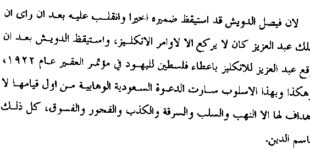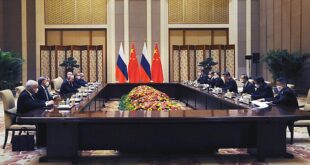At the beginning of May, Syrian President Bashar al-Assad visited Russian leader Vladimir Putin at his summer residence in Sochi, on the Black Sea, for talks about the Syrian conflict, a meeting which had not been announced in advance. During the meeting, Vladimir Putin was quoted as saying that after the Syrian regime’s military successes, additional conditions have been created for “the renewal of a fully-fledged political process.” After the meeting, Vladimir Putin also declared that “with the start of the political process in its most active phase, foreign armed forces will withdraw from Syrian territory.”
Russia’s position in Syria has been consolidating because of the development of its capabilities and its gradual involvement in the country. Russia became an important partner in the negotiations seeking to identify a political way to end the conflict, by setting new negotiation options that put a distance from the UN envoy Staffan de Mistura’s policy and destroy the pressure on that solution. The Syrians consider that Moscow established a new approach to a political solution in Syria at the Sochi conference, bringing into discussion aspects of the Constitution and the elections and insisting on maintaining Bashar al-Assad in power, presiding over a sovereign state.
The Syrians say that “the United States consider Sochi as an instrument to design a new map of their influence in the Middle East, firstly against Iran’s interests”, announcing the creation of the Northern Syrian Army as one of their instruments of their Syrian agenda, in order to keep the military bases they have in this country.
According to an official from Russia’s Security Council quoted by the RIA news agency, the U.S. has established 20 military bases in Syria. Recently, it was also reported that the U.S. was transforming its troop presence in Al Tabaqah near Raqqa and Al-Tanf into military bases. The U.S. presence in Al-Tanf, along with Deir az-Zour, is already blocking Iran’s Mediterranean access.
After the Putin-Assad meeting in Sochi, the Russian envoy to Syria, Alexander Lavrentiev, said that Putin’s request for withdrawal of the foreign armed forces in Syria included Iran, a declaration that was promptly followed by Tehran’s reaction, with foreign ministry spokesman Bahram Ghasemi telling reporters: “Nobody can force Iran to do something against its will.”
In fact, according to several analysts Putin’s message was that the Syrian conflict must not evolve into a war between Iran and Israel, especially since Israel has launched a series of deadly air raids on Iranian positions in Syria. Russia does not have many options and needs to make sure that the confrontation, which is unlikely to end, does not get out of control, erasing Russia’s own gains in Syria.
While most analysts have long warned that the U.S. attempt to draw back from the Middle East would open a vacuum for other world powers to fill, the increasing tensions in Syria between Israel and Iran underscore the perils of that gambit. In fact, the recent events were also an indication of the possibility that rather than a mastermind, Russia is another superpower failing in the Middle East, deluded by illusions of grandeur, but way out of its depth. In the absence of solutions to offer, Russia winds up using the Middle East’s simmering conflicts for its own prestige and influence, without actually improving anything. In fact, soon after Putin’s Sochi declaration, Russia bolstered its naval presence in the eastern Mediterranean, with warships armed with armed with Kalibr cruise missiles to be permanently deployed near Syria, where rival U.S. military vessels also operate.
Check Also
China Treads A Fine Line On The Russia–Ukraine War
Since the beginning of the Russia–Ukraine war, China has been urged to give up its …
 Eurasia Press & News
Eurasia Press & News



